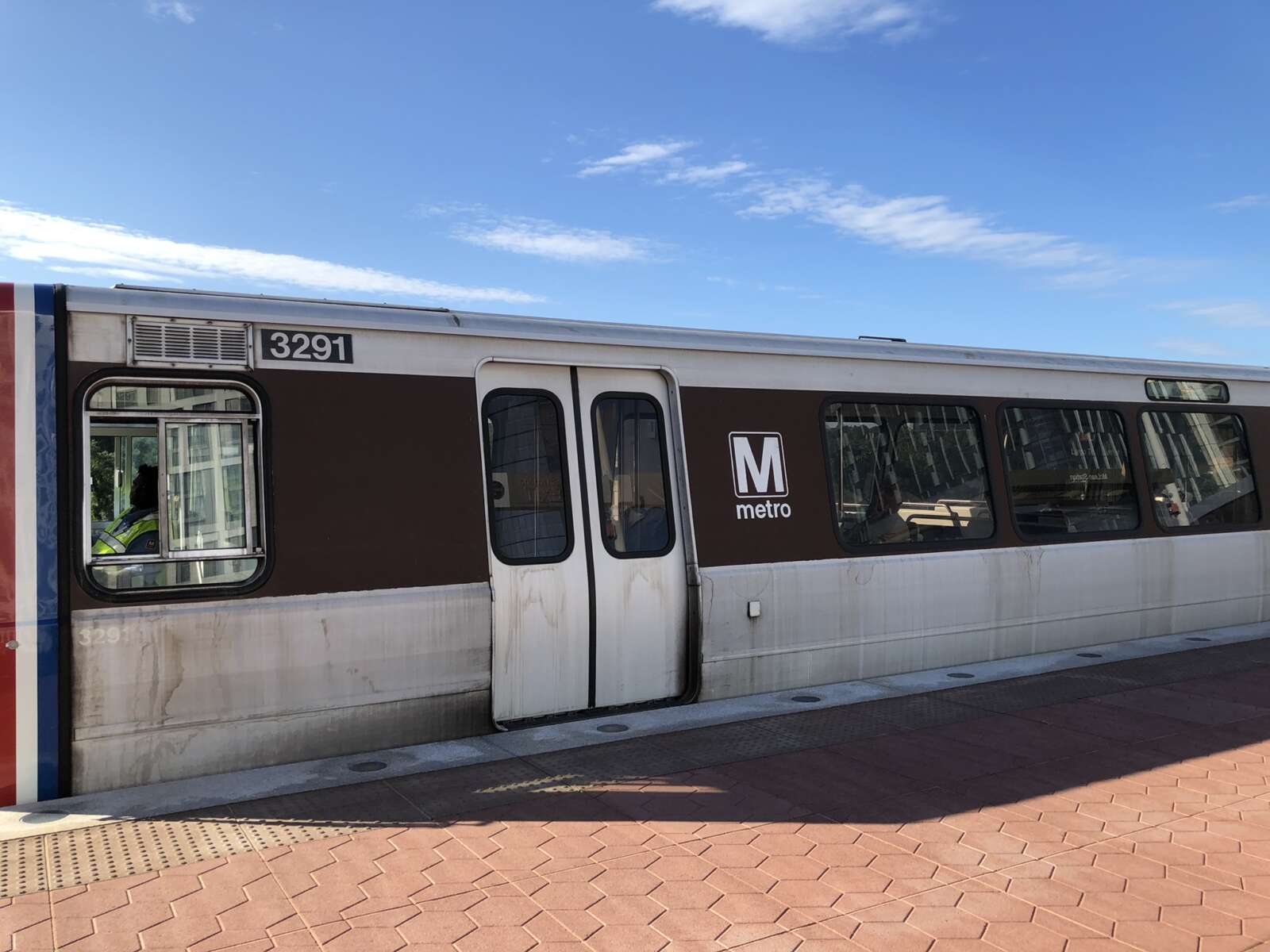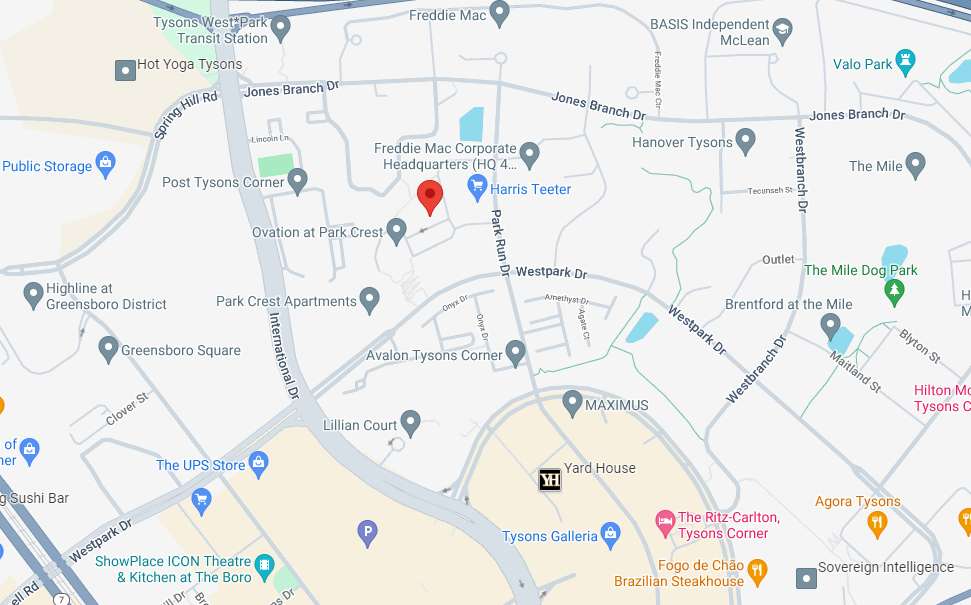Tensions reached a boiling point last night (Wednesday) in McLean as local residents threatened to run a therapy center out of town — legally or illegally, in the words of one neighbor.
A series of new group homes by Newport Academy, a corporation that runs therapy programs treating teenagers with mental health or addiction problems, are planned for a residential neighborhood.
Three of the homes — 1620, 1622 and 1624 Davidson Road — are clustered on a private cul-de-sac one block away from McLean High School, while another one is going in at 1318 Kurtz Road.
Representatives from the project, several elected officials and Fairfax County staff started a community meeting in the McLean High School auditorium with presentations about the project, but the more than four-hour-long public hearing after the presentations showed that the project has struck a deep nerve with the local community.
On one side were the Newport Academy staff and a handful of supporters in the audience who said the program is necessary to help deal with the local mental health crisis. Teenagers or adults who said they had struggled with mental health issues described the difficulty of finding treatment facilities in the area. These stories were frequently interrupted by a chorus of booing from the audience — at least once in the middle of a young woman recounting her trauma following a sexual assault.
But opponents of the project — mainly nearby residents or parents with children at McLean High School — comprised the vast majority of the standing-room-only audience in the auditorium.
While they were united in opposition to the project, their reasons varied. Del. Rip Sullivan (D-48th District) conducted an impromptu poll of the audience, and half said they are opposed to any group home while the other half would be fine with just one, but opposed the cluster.
“It’s three houses side by side; it’s a compound,” Robert Mechlin, a nearby resident, told Tysons Reporter. “If I want to build a shed, I have to get a permit. Why isn’t this the same litmus test?”
Mechlin also echoed concerns about how residents of the facility would affect safety in the nearby neighborhood. In the small town of Bethlehem, Conn., students at the Newport Academy were responsible for at least two criminal incidents — the theft of a car and a student who stole bottles of vodka from a local bar. Throughout the evening, nearby residents said the prospect of the treatment facility next door makes them feel unsafe.
Newport Academy Founder and CEO Jamison Monroe said security tightened after the incidents in Connecticut. A presentation on the project noted that alarms would be attached to every door and window and the students would be closely supervised by staff. Later in the meeting, Monroe offered to pay for a security guard to monitor the site, but by then the public concerns around the project ballooned beyond just security.
The secrecy and allegations of deception surrounding the purchasing of the property were also recurring themes among the opponents. Neighbors said that after the properties were purchased, the real estate agents who orchestrated the deals told neighbors they were subject to non-disclosure agreements.
“I was told multiple times that [the development] was for a wealthy individual,” Steve Wydler, a leasing agent with Wydler Brothers Real Estate in McLean, said. “It was only after construction started that we were told the project was under an NDA.”
Monroe admitted that he didn’t know why the non-disclosure agreements were put into place.
“I’ve learned some things about our real estate agents this evening that I was not aware of previously,” Monroe said.
Marc Lampkin, who became one of the unofficial orchestraters of the opposition from a seat in the front row, said the facility would extract money from the students and leave the neighborhood with problems.
“We all appreciate the notion of treatment, but the single biggest concern is that you failed the good neighbor policy out of the box,” Lampkin said. “You hired a real estate agent who bought the property with lies and misrepresentation. You are a for-profit entity and you’re driving a truck through a loophole [in Fair Housing law].”
As frustrations escalated throughout the evening, Monroe became the main target of the community’s rage, with local residents calling him smug, arrogant and a “son of a bitch” several times.
Caught between the two, the elected officials expressed unhappiness with the project, but said it was being redeveloped by-right and left their hands tied.
Two of the rallying cries from the opposition were “Remember Sunrise” — a reference to a plan by Sunrise Senior Living Facility that the Board of Supervisors denied following widespread public outrage — and a promise to oust elected officials if they didn’t vocally oppose the project.
“I do not support three houses on the same site,” Dranesville District Supervisor John Foust said. “But it is the law. In my opinion, one company buying those properties changes the character of the neighborhood. I oppose that. But we do not see a way to stop it.”
The county argued that the project is a group home, which is considered a “by right” development — meaning there’s no requirement of public notice and no zoning approvals needed from the county. Several of the politicians said they first heard of the project when the outrage started.
“I am not at all surprised to see this turnout,” Sullivan said. “Three weeks ago, our emails lit up with questions and comments.”
Complicating the issue, the Fair Housing Act makes it unlawful to discriminate against individuals because of a handicap or disabilities, which the Code of Virginia says includes residential facilities housing individuals with mental illnesses.
But several opponents noted that there are ways around that protection. Some locals questioned whether the project qualified as a group home. Wydler said that the project might not qualify as a residence — a crucial part of the project’s status as a by-right development — given that the average length of stay for students of the program is substantially less than the 183 days that the tax code considers residency.
Fairfax County Attorney Beth Teare said the county was still looking into the zoning regulations and rules surrounding the project. The group’s license application is still pending before the Virginia Department of Behavioral Health and Developmental Services.
If the licenses are granted, Monroe said the facilities could begin operation within a few months. If it does, at least one attendee threatened to file a lawsuit.
Regardless of the outcome, Sullivan said he and other elected officials would look into closing what the public saw as fair housing loopholes.
“One of the things I want to look at moving forward is making sure there is more advanced notice of this sort of thing,” Sullivan said.





